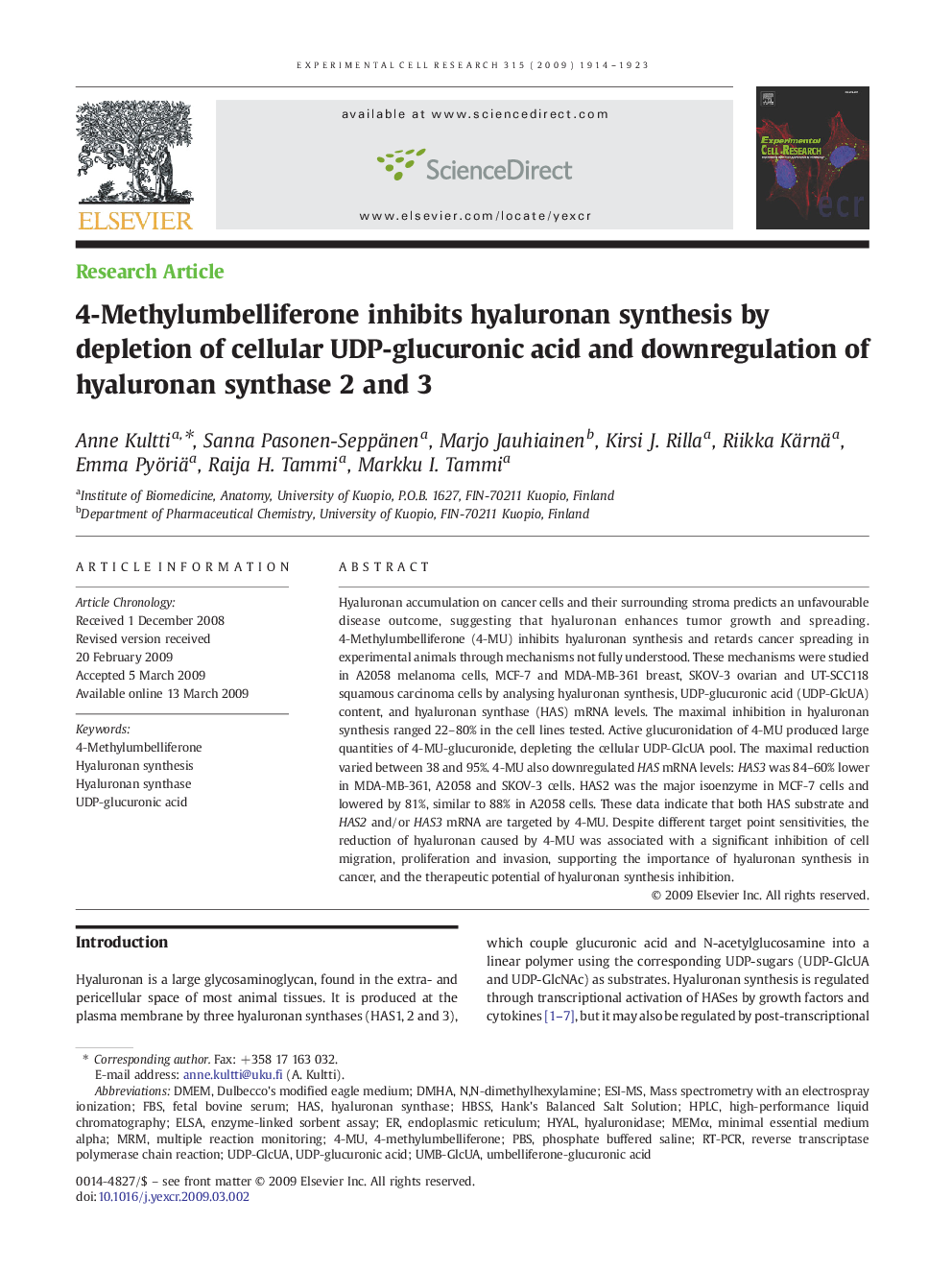| Article ID | Journal | Published Year | Pages | File Type |
|---|---|---|---|---|
| 2131583 | Experimental Cell Research | 2009 | 10 Pages |
Abstract
Hyaluronan accumulation on cancer cells and their surrounding stroma predicts an unfavourable disease outcome, suggesting that hyaluronan enhances tumor growth and spreading. 4-Methylumbelliferone (4-MU) inhibits hyaluronan synthesis and retards cancer spreading in experimental animals through mechanisms not fully understood. These mechanisms were studied in A2058 melanoma cells, MCF-7 and MDA-MB-361 breast, SKOV-3 ovarian and UT-SCC118 squamous carcinoma cells by analysing hyaluronan synthesis, UDP-glucuronic acid (UDP-GlcUA) content, and hyaluronan synthase (HAS) mRNA levels. The maximal inhibition in hyaluronan synthesis ranged 22-80% in the cell lines tested. Active glucuronidation of 4-MU produced large quantities of 4-MU-glucuronide, depleting the cellular UDP-GlcUA pool. The maximal reduction varied between 38 and 95%. 4-MU also downregulated HAS mRNA levels: HAS3 was 84-60% lower in MDA-MB-361, A2058 and SKOV-3 cells. HAS2 was the major isoenzyme in MCF-7 cells and lowered by 81%, similar to 88% in A2058 cells. These data indicate that both HAS substrate and HAS2 and/or HAS3 mRNA are targeted by 4-MU. Despite different target point sensitivities, the reduction of hyaluronan caused by 4-MU was associated with a significant inhibition of cell migration, proliferation and invasion, supporting the importance of hyaluronan synthesis in cancer, and the therapeutic potential of hyaluronan synthesis inhibition.
Keywords
minimal essential medium alphaDMEMMEMαFBSDMHAESI-MSUDP-GlcUART-PCRELSA4-methylumbelliferoneMRM4-MUHBSSPBSHASDulbecco's modified Eagle MediumUDP-glucuronic acidfetal bovine serumendoplasmic reticulumPhosphate buffered salineHank's balanced salt solutionmultiple reaction monitoringHyalHyaluronan synthaseHyaluronidasereverse transcriptase polymerase chain reactionhigh-performance liquid chromatographyHPLC
Related Topics
Life Sciences
Biochemistry, Genetics and Molecular Biology
Cancer Research
Authors
Anne Kultti, Sanna Pasonen-Seppänen, Marjo Jauhiainen, Kirsi J. Rilla, Riikka Kärnä, Emma Pyöriä, Raija H. Tammi, Markku I. Tammi,
